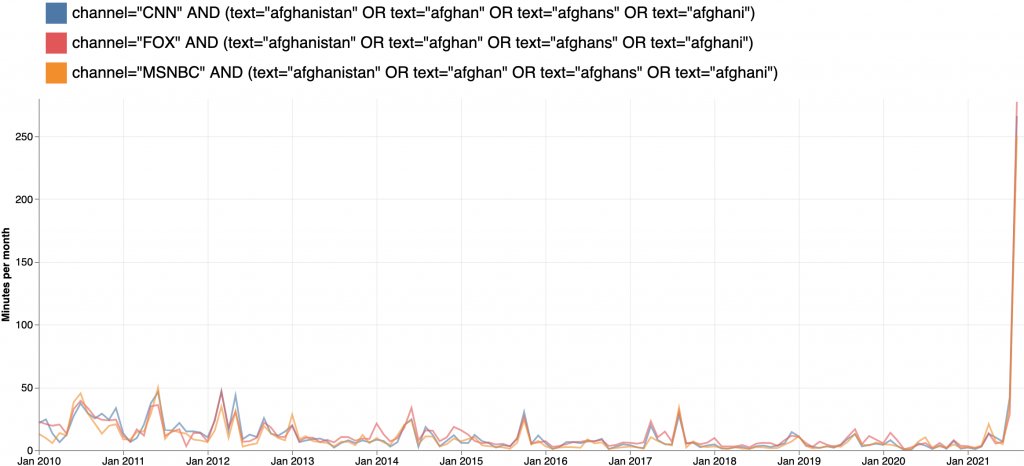The Afghanistan Papers

The special inspector general for Afghanistan reconstruction [gift link] observes that the war was a total failure its supporters continued to defend with some combination of knowing lies or statements they should have known were not true:
The collapse of the U.S.-backed government in Afghanistan on Aug. 15, 2021, revealed what little American lives and money had purchased over 20 years there. It also laid bare a gaping disconnect between reality and what senior U.S. officials had been telling Americans for decades: that success was just around the corner.
As the special inspector general for Afghanistan reconstruction since 2012, my staff and I have audited and investigated U.S. programs and spending to rebuild Afghanistan — a mission that, it was hoped, would turn the theocratic, tribal-based “Graveyard of Empires” into a modern liberal democracy.
In hundreds of reports over the last 12 years, we have detailed a long list of systemic problems: The U.S. government struggled to carry out a coherent strategy, fostered overly ambitious expectations, started unsustainable projects and did not understand the country or its people. American agencies measured success not by what they accomplished, but by dollars spent or checklists of completed tasks.
As our own agency winds down and we prepare to release our final report this year, we raise a fundamental and too rarely asked question: Why did so many senior officials tell Congress and the public, year after year, that success was on the horizon when they knew otherwise? For two decades, officials publicly asserted that continuing the mission in Afghanistan was essential to national interests, until, eventually, two presidents — Donald Trump and Joe Biden — concluded it was not.
[…]
Yet over two decades — and even as Afghan provinces fell like dominoes in the summer of 2021 — I do not recall any senior official telling Congress or the American people that failure was a real possibility.
Our final report will detail what many experts and senior government officials now say to us, with hindsight: that these entrenched, fundamental challenges doomed any real possibility of long-term success. Some argued that decisions made as early as 2002 — such as partnering with warlords and refusing to include the Taliban in discussions about Afghanistan’s future — set a course for inevitable failure. Others blamed poor interagency coordination, rampant Afghan corruption, ignorance of local culture and the distance between U.S. goals and Afghanistan’s realities.
Perversely, the comprehensive failure of the Blob’s project in Afghanistan was their best political weapon against Joe Biden. Even though the withdrawal went about as well as could be reasonably expected under the circumstances, there was not a “NO CHAOS” button Biden could push when winding down operations in a country that after many years of very expensive nation-building we were assured was going great did not have a state in the Weberian sense at all. This allowed the war’s apologists to move on to a new lie: “we’re not against ending the war, just against ending the war like this” and hope people would fail to notice that the “not like this” option doesn’t exist. It was the last act of dishonesty in nearly 20 years of lies, and its smashing political success creates very bad incentives going forward.
Here's a graph showing minutes of Afghanistan coverage per month on CNN, MSNBC, and Fox News from January 2010 through August 2021. https://t.co/zBMJp318hF pic.twitter.com/sQLi5LSyKs— Matthew Gertz (@MattGertz) January 2, 2025


